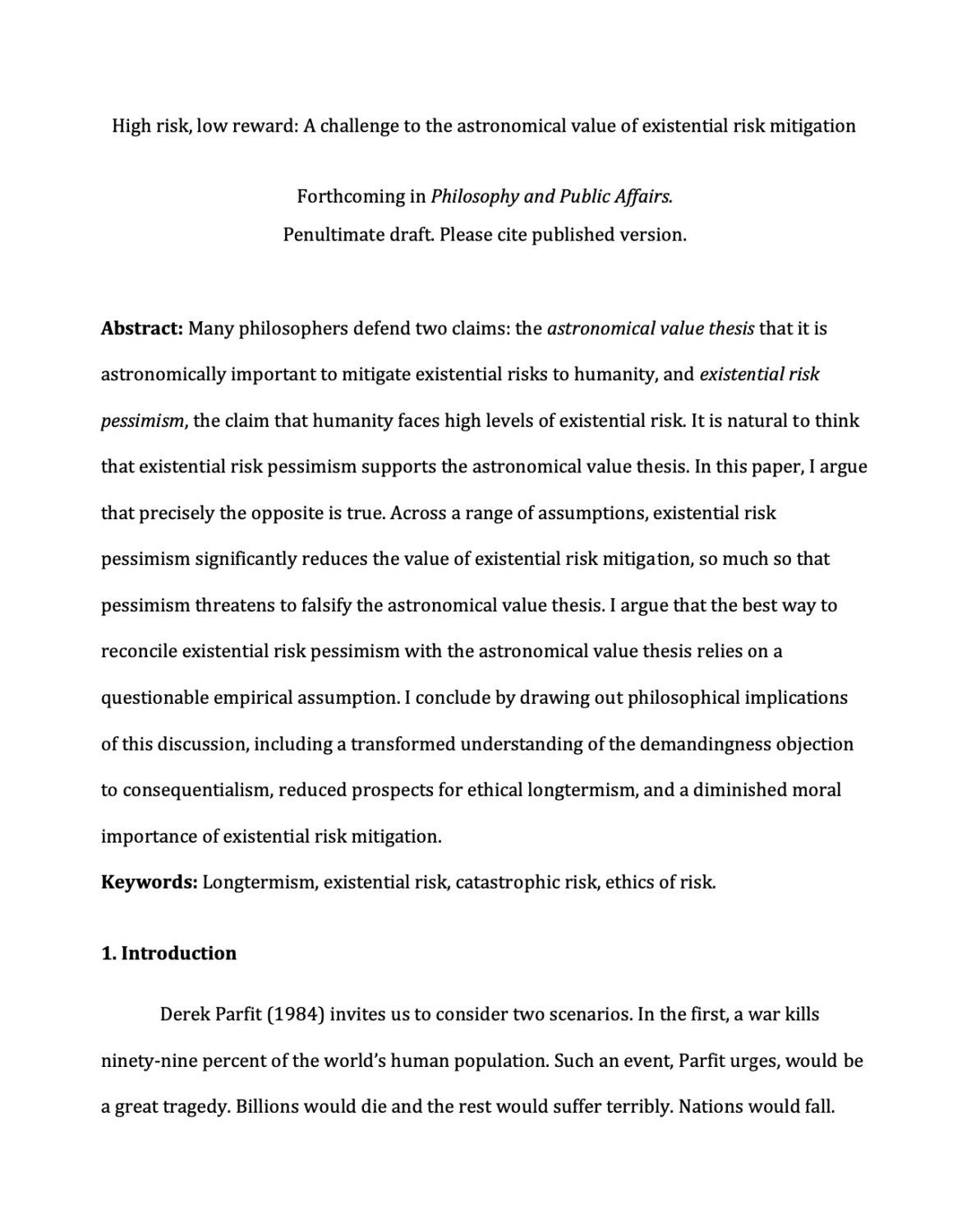High risk, low reward: A challenge to the astronomical value of existential risk mitigation
David Thorstad (Global Priorities Institute, University of Oxford)
GPI Working Paper No. 6-2023, published in Philosophy and Public Affairs
Many philosophers defend two claims: the astronomical value thesis that it is astronomically important to mitigate existential risks to humanity, and existential risk pessimism, the claim that humanity faces high levels of existential risk. It is natural to think that existential risk pessimism supports the astronomical value thesis. In this paper, I argue that precisely the opposite is true. Across a range of assumptions, existential risk pessimism significantly reduces the value of existential risk mitigation, so much so that pessimism threatens to falsify the astronomical value thesis. I argue that the best way to reconcile existential risk pessimism with the astronomical value thesis relies on a questionable empirical assumption. I conclude by drawing out philosophical implications of this discussion, including a transformed understanding of the demandingness objection to consequentialism, reduced prospects for ethical longtermism, and a diminished moral importance of existential risk mitigation.
Other working papers
Existential risks from a Thomist Christian perspective – Stefan Riedener (University of Zurich)
Let’s say with Nick Bostrom that an ‘existential risk’ (or ‘x-risk’) is a risk that ‘threatens the premature extinction of Earth-originating intelligent life or the permanent and drastic destruction of its potential for desirable future development’ (2013, 15). There are a number of such risks: nuclear wars, developments in biotechnology or artificial intelligence, climate change, pandemics, supervolcanos, asteroids, and so on (see e.g. Bostrom and Ćirković 2008). …
Economic inequality and the long-term future – Andreas T. Schmidt (University of Groningen) and Daan Juijn (CE Delft)
Why, if at all, should we object to economic inequality? Some central arguments – the argument from decreasing marginal utility for example – invoke instrumental reasons and object to inequality because of its effects…
Doomsday and objective chance – Teruji Thomas (Global Priorities Institute, Oxford University)
Lewis’s Principal Principle says that one should usually align one’s credences with the known chances. In this paper I develop a version of the Principal Principle that deals well with some exceptional cases related to the distinction between metaphysical and epistemic modality. I explain how this principle gives a unified account of the Sleeping Beauty problem and chance-based principles of anthropic reasoning…

